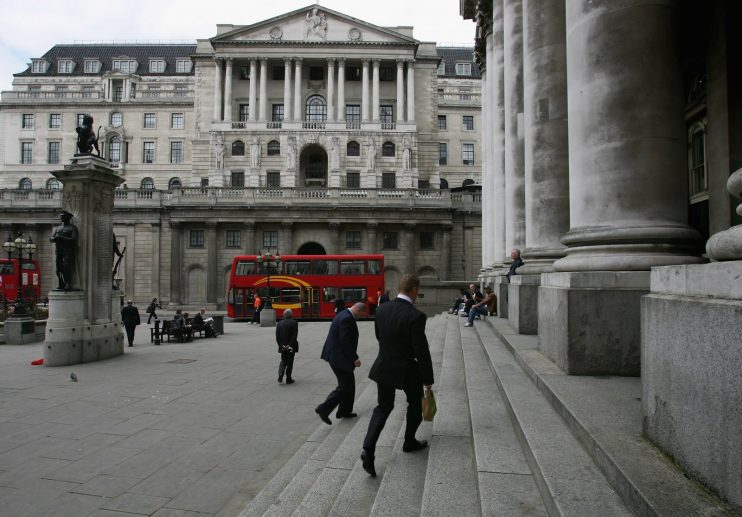Bank of England has undercooked inflation forecasts again, City economists warn

The Bank of England has undercooked its forecasts for inflation again in a sign the cost of living squeeze will get worse before it gets better, reveals new estimates from City economists.
Inflation will peak at 7.5 per cent in April, higher than the Bank’s expected peak of 7.25 per cent in its latest forecasts, according to consultancy Pantheon Macroeconomics.
Bank of America today also hiked their inflation forecast to peak at 7.4 per cent, up from 6.6 per cent.
If Pantheon and Bank of America’s predictions materialise, it would mark another miscalculation of the severity of price rises in the UK economy by Threadneedle Street.
The fresh estimates underline the scale of the cost of living crunch that is set to hit households and throttle UK growth over the coming year.
A combination of swelling energy bills, rising prices and looming tax hikes will erode Brits’ living standards, indicating households could pull back on spending as their budgets come under pressure.
The Bank estimates households’ real take home pay will fall at the fastest rate since 1990.
The Bank’s decision to lift interest rates to 0.5 per cent last Thursday will add to the cost of living burden by raising mortgage rates.
Governor Andrew Bailey ignited fury last week when he urged workers to exercise restraint on asking employers for a pay rise to offset spending power erosion resulting from high inflation.
Households are unlikely to draw down from their pandemic-induced savings to maintain spending levels, delivering a sharp blow to UK economic growth this year, according to Pantheon’s new forecasts.
“The low level of consumers’ confidence, the poor performance of households’ investments over the last year and the unequal distribution of these savings suggest households will deploy only a small fraction of this cash,” Samuel Tombs, chief UK economist at Pantheon Macroeconomics, said.
Markets think the Bank will launch a rapid rate hike cycle this year in a bid to shift policy from supporting the British economy through the pandemic to tamping down on inflation.
Avoiding contributing to the cost of living crisis and stemming consumer spending will see the Bank take a cautious approach, Tombs said.
Sending rates to “one per cent will be as high as the [monetary policy committee] will be able to raise Bank Rate without unduly slowing the economy,” Tombs added.
However, other experts are betting on a stronger rate hike spree from the Bank this year. Goldman Sachs are forecasting three more, sending borrowing costs to 1.25 per cent by the end of the year.